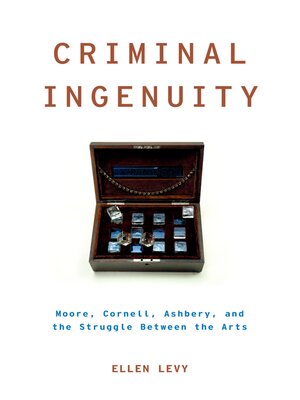Criminal Ingenuity
ebook ∣ Moore, Cornell, Ashbery, and the Struggle Between the Arts · Modernist Literature and Culture
By Ellen Levy

Sign up to save your library
With an OverDrive account, you can save your favorite libraries for at-a-glance information about availability. Find out more about OverDrive accounts.
Find this title in Libby, the library reading app by OverDrive.



Search for a digital library with this title
Title found at these libraries:
| Library Name | Distance |
|---|---|
| Loading... |
"Poetry was declining/ Painting advancing/ we were complaining/ it was '50," recalled poet Frank O'Hara in 1957. Criminal Ingenuity traces a series of linked moments in the history of this transfer of cultural power from the sphere of the word to that of the image. Ellen Levy explores the New York literary and art worlds in the years that bracket O'Hara's lament through close readings of the works and careers of poets Marianne Moore and John Ashbery and assemblage artist Joseph Cornell. In the course of these readings, Levy discusses such topics as the American debates around surrealism, the function of the "token woman" in artistic canons, and the role of the New York City Ballet in the development of mid-century modernism, and situates her central figures in relation to such colleagues and contemporaries as O'Hara, T. S. Eliot, Clement Greenberg, Walter Benjamin, and Lincoln Kirstein. Moore, Cornell, and Ashbery are connected by acquaintance and affinity-and above all, by the possession of what Moore calls "criminal ingenuity," a talent for situating themselves on the fault lines that fissure the realms of art, sexuality, and politics. As we consider their lives and works, Levy shows, the seemingly specialized question of the source and meaning of the struggle for power between art forms inexorably opens out to broader questions about social and artistic institutions and forces: the academy and the museum, professionalism and the market, and that institution of institutions, marriage.







